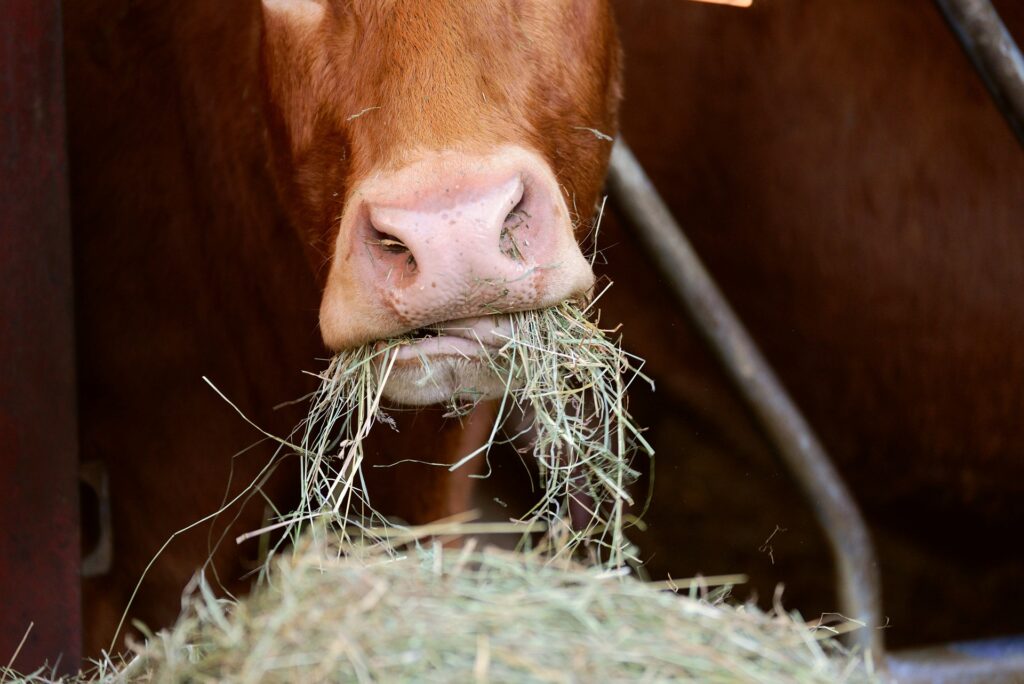What is it?
Like all animals, cattle require a proper balance of macronutrients (i.e., protein, carbohydrates, and fats), as well as micronutrients including vitamins and minerals.
Nutritionists are often involved in the feed management of an operation, to ensure the proper nutrients are supplemented with the feed. This supplementation will be different at every farm and will depend on the feed and the animal’s dietary requirements based on their condition, age, and production stage. Vitamins and minerals are important for body processes such as bone development, immune function, reproduction, metabolic processes, and many others.
Cattle are ruminants and have a four-chambered stomach. Their rumen contains a large microbial population that aids in digestion. This allows cattle to digest food that humans cannot, such as hay and grass.
Water is also essential for cattle. They should have consistent access to clean water, as it makes up between 50-80% of the animal’s weight [1].

Challenges
- The nutritional needs of beef cattle changes as they grow and develop [1]. At different production stages, cattle have different needs and require their diet to be adjusted to suit these needs. For example, a cow that is pregnant or nursing a calf will have additional nutritional requirements to support its fetus and/or calf.
- Weather can greatly influence what crops are available on a year-to-year basis. Crop availability will impact livestock feed, and this is often out of the producer’s control.
- The season will also affect feed availability for cattle. In the summer, cows have an abundance of grass to graze on. However, in the winter stored forages are often used for feed. If weather impacted crop growth over the summer, there may be a shortage of stored feed.
How Does it Prevent AMR?
A deficiency in nutrients, vitamins, or minerals can negatively impact both the growth and immune functions of cattle. Therefore, sufficient energy, protein, water, vitamins, and minerals are essential in promoting the health of an animal and reducing the need for antimicrobials.

This beef nutrition program is designed to help achieve optimal gain and profitability targets. It includes various feeds, supplements, and rations.
Further Reading
Research Gaps
Product/Service Gaps
References
[1] Beef Cattle Research Council, ‘Nutrition in Beef Cattle’, Beef Research, Jul. 28, 2022. https://www.beefresearch.ca/topics/nutrition-in-beef-cattle/ (accessed Aug. 17, 2022).

